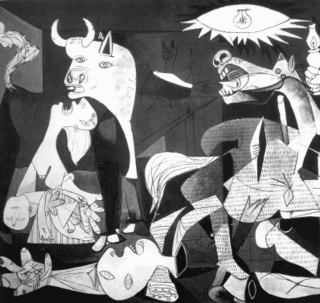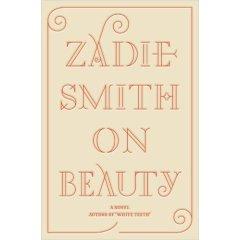
Sometimes true opposites aren't what you always assumed. I've heard my pastor say that hate is not the opposite of love; fear is. Or how about this one, for you science-y people (ahem, Clay): cold is not the opposite of heat. Absolute stillness is.
Now these ideas, admittedly, can be a bit abstract. What about this tangible world? A schoolchild might be tempted to say that an apple is the opposite of an orange. Many adults would find this prepostorous, but I would encourage you adults out there to think again. With one fruit you eat the skin, and with the other, you don't.
Okay, that last one is a big arguable. But here's one I've thought about for quite some time: What's the opposite of NPR (National Public Radio)? The answer, in a moment of great clairvoyance, came to me as I ran: Blue Collar TV. This was a show I happened to see on the television the other night as I exercised in my complex's work-out room. I cannot begin to describe it, except to say it involves camouflage caps, plenty of overalls, and three lead actors who delight in being the biggest offensive idiots I could imagine. They make Homer Simpson seem qualified to teach at butler school, and in comparison Dumb and Dumber achieves a stance of elegant poise and restraint. (That Blue Collar TV is the opposite of a symphony orchestra could also be argued, but that can wait for another post.)
 NPR, however, was my companion for the last half of my run. I listened to an interview with Zadie Smith, young author of the recent best-seller On Beauty, a work of fiction exploring how situations shape one's identity. This is a radio channel where it's not uncommon to hear people who would spell epitomise with an "s", and who pronounce can't like "Kant" and ought somewhere in between "oat" and "aht."
NPR, however, was my companion for the last half of my run. I listened to an interview with Zadie Smith, young author of the recent best-seller On Beauty, a work of fiction exploring how situations shape one's identity. This is a radio channel where it's not uncommon to hear people who would spell epitomise with an "s", and who pronounce can't like "Kant" and ought somewhere in between "oat" and "aht."
Aside from the fictional novel's plot, I was intrigued by Smith's ruminations on identity. Although she is black and British, she argues that these factors do not shape her identy unless she pursues them. By pursuing her African heritage, and by relishing things British--be they Shakespeare's Henry V or Prince William fever--she embraces the very things that mold her identity. So an identity has less to do with who a person is, as what those person's passions may be.
Aside from the obvious implications on the meaning of joining, say, the National NeedleArts Association, I had to wonder if this might be why it could be difficult for Americans of opposing viewpoints to engage in meaningful dialogue. To have someone challenge a passionately-held belief could be to have one's own identity threatened.
Somewhere around this point, my thighs started to burn, and my lungs were nearly saturated with thick mucous. I was on the home stretch when the unthinkable happened. A red-head, about my age, passed me. The event-horizon trailing in the wake of my fundamental pace was instantly compressed into the size of a quasar. Or was it a quark? In any case, with time still at a standstill, I had plenty of it to re-think some presuppositions of the thermodynamic arrow of time. This Irishman clearly must have been traveling in a reverse vector which happened to still coincide with my psychological arrow of time. Comforted, I trotted of the trail, entered the gate, and began to stretch...






3 comments:
You've probably scared away your English-teacher fan with this post!!
~DH
Have you read "On Beauty" or just heard the author speak? Your comments on it intrigued me, and I think I'll go find a copy and read it. Just wondered if you had further thoughts on the matter...
- Anon. in IL
To Anonymous in IL,
No, hearing the radio interview on NPR was my first exposure to Zadie Smith. Though young, she seems to be a careful and articulate thinker.
I particularly appreciate the efforts of authors who portray their observations about the world in a work of fiction. Rather than spell everything out in a cumbersome--even laborious--piece of nonfiction, they TRUST their readers to read, observe, analyze, and synthesize.
Thanks for your comment.
Jonathan
Post a Comment